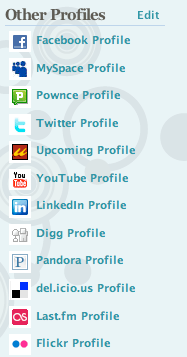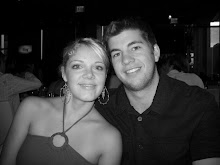 Since I finished pilot training I have had some time for myself to study, think, write and review. One thing I have felt strongly about is going back over some of the books and ideas I found most interesting over the past few years. For example, I read The Tipping Point: How Little Things Can Make a Big Difference
Since I finished pilot training I have had some time for myself to study, think, write and review. One thing I have felt strongly about is going back over some of the books and ideas I found most interesting over the past few years. For example, I read The Tipping Point: How Little Things Can Make a Big Difference by Malcom Gladwell a while back, but if someone asked me to summarize the ideas today, I would be limited to the subtitle, "How Little Things Can Make a Big Difference, " and a few smatterings from the book on Mavens and broken-window theory...not exactly high quality or usable information...so I'm reviewing in order to be able to actually use and apply Gladwell's ideas rather than just recalling how interesting they were at the time.
One of my favorite sections of the book involves the Law of the Few where Gladwell lays out the 3 types of people necessary to start a social epidemic: Connectors, Mavens and Salesmen. Connectors fascinate me because I relate to them the most. Connectors, in Gladwell's words are, "people with a special gift for bringing the world together." Connectors know lots of people, naturally, and, "for one reason or another, they manage to occupy many different worlds and subcultures and niches." For me the most important aspect of connectors is their gift of creating and cultivating what sociologists call a "'weak tie,' a friendly yet casual social connection."
It is my opinion that weak ties are an invaluable source of social capital one must cultivate if he or she has any chance at success. More from Gladwell:
In his classic 1974 study Getting a Job, Granovetter looked at several hundred professional and technical workers from the Boston suburb of Newton, interviewing them in some detail on their employment history. He found that 56 percent of those he talked to found their job through a personal connection. Another 18.8 percent used formal means...This much is not surprising; the best way to get in the door is through a personal contact. But, curiously, Granovetter found that those personal connections, the majority were "weak ties." Of those who used a contact to find a job, only 16.7 percent saw that contact "often"...People weren't getting their jobs through their friends. They were getting them through their acquaintances.
In short we don't rely on friends when it comes to new jobs, new information or new opportunities because in large part, they occupy a world very similar to ours. Weak ties are incredibly important for the simple fact that they are generally connections to a world outside of our own, a diverse form of social capital allowing us access into places we normally could not go. In a world of globalization geography is becoming less important and relationships are becoming more important. As the pool of high-skilled workers increases (aka China and India) who you know will become a key way to differentiate yourself from the other thousand people with similar resumes, making the number of your weak ties a valuable asset in determining your success in business and in life. Knowing the importance of weak ties, here are some ways to get better at creating and cultivating them:
1) Meet more people - go to church, attend art shows, join a book club. Expose yourself to various degrees of social randomness, groups and people that you would normally not associate with, people outside your normal social circle. Remember, you are not looking for a new best friend, only casual friendly connections. If your normal Friday night routine involves staying at home and watching a movie in your sweat pants, mix it up a bit and go out every other week. Extra tip: people tend to connect more easily if they are holding a beverage in their hand...it seems to create a small barrier making people more comfortable when conversing.
2) Organize your contacts - meeting mass amounts of people will do you no good if you do not come up with some sort of system to remember them. LinkedIn is a very useful online tool I just joined. They help you track down old classmates and colleagues, create connections, organize and maintain detailed contact information. Obviously there are a million social networking options today from MySpace to Facebook to Twitter...use them all. Also, most smart phones today have great contact systems as well, utilize them and keep them updated.
3) Weak tie, not dead tie - Find a way of keeping the ties alive over the years. For example, Mr. Horchow, a connector Gladwell studied in Tipping Point would keep track of his contacts birthdays and send them a birthday card. This seems easy enough you might say...Horchow had a contact list on his computer of over 1,600 names! Maybe this isn't your style, but find something even if it is only a yearly e-mail updating them on your life, or a Christmas card, whatever you have to do to keep the tie healthy enough that when you call on that person for a favor sometime down the road they don't respond with, "who did you say you were again?"
4) The magic of remembering a name - We all know how good it makes you feel when someone you only met once remembers your name....become that person. I heard a story once of a Wing Commander at an Air Force base in North Dakota that memorized the names of every single airmen under his command...and their spouses! We're talking thousands of names people! He obviously had come up with a system, placing a name with a fact about the person, reviewing photos, something. Whatever he did, his ability to know his subordinates' names made an incredible impact. The moral was very high and every airmen wanted to work hard for the Commander because they felt like he cared. If you can learn to remember people's names it will make you a person people want to remember.
Go forth people and establish your weak ties! Comment with your ideas, systems and thoughts.


